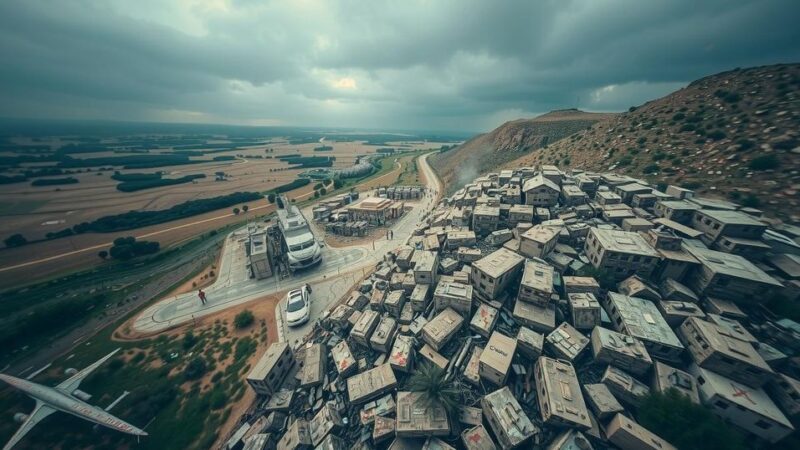The SADC held an extraordinary summit addressing Mozambique’s post-election violence, where police violence against protesters has raised alarms. Allegations of electoral fraud by the ruling FRELIMO party have triggered public unrest. SADC affirmed its commitment to support peace and stability while the opposition continues to demand transparent electoral processes.
On Wednesday, the Southern African Development Community (SADC) convened an extraordinary summit of heads of state in Zimbabwe, focusing on the escalating post-election violence in Mozambique and ongoing conflicts in the eastern Democratic Republic of the Congo. Since the elections last month, Mozambique has witnessed significant unrest, with civil society organizations reporting that police have killed at least 30 protesters. The opposition party alleges that the ruling FRELIMO government, represented by President Filipe Nyusi, committed electoral fraud in the elections held on October 9.
During the summit, SADC’s executive secretary, Elias Magosi, provided an update on Mozambique’s political and security situation, affirming SADC’s commitment to supporting peace and stability in the country through its relevant structures. “The summit extended condolences to the government and people of the Republic of Mozambique for the lives lost during the post-election violence,” stated Magosi. He further emphasized the importance of pursuing legal avenues for grievances rather than resorting to violence.
Notably, Zimbabwean President Emmerson Mnangagwa, who is presiding over the SADC as chair, refrained from addressing the situation in Mozambique in his closing remarks. Instead, he concentrated on the conflict in the Democratic Republic of the Congo, where the Congolese army has been combating rebel factions with support from several SADC countries.
In response to developments, Albino Forquilha from the Optimist Party for the Development of Mozambique (PODEMOS) expressed skepticism regarding the SADC meeting’s potential impact, highlighting the party’s mobilization of protests against the electoral commission’s announced results. “…we are requesting fair elections. The constitutional court, which is the last institution to give results in a transparent manner — it’s important to call representatives of competing political parties when they validate the election,” Forquilha conveyed. This underscores the opposition’s demand for a transparent electoral process. In a recent state address, President Nyusi invited all four presidential candidates to engage in dialogue to help mitigate ongoing protests following the contentious election results.
The political climate in Mozambique has been strained following the October 9 elections, which opposition parties claim were marred by significant irregularities. The ruling FRELIMO party, which has dominated Mozambican politics since independence in 1975, faces increasing discontent manifesting as public protests. Civil society has raised alarms over the harsh police response to dissent, culminating in reported casualties. The SADC summit in Zimbabwe serves as a platform for regional leaders to address these pressing issues and consider potential interventions.
In conclusion, the summit held by the Southern African Development Community highlighted the urgent need for peace and stability in Mozambique following a tumultuous electoral period. The reported violence and allegations of electoral misconduct have led to significant public unrest, prompting regional leaders to engage in discussions about the situation. The opposition’s calls for transparency and fair electoral processes continue to be paramount, as efforts to resolve the crisis unfold.
Original Source: www.voanews.com




